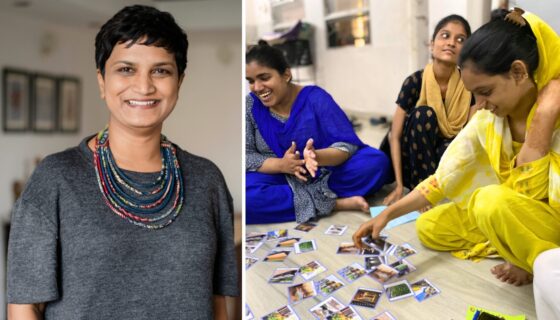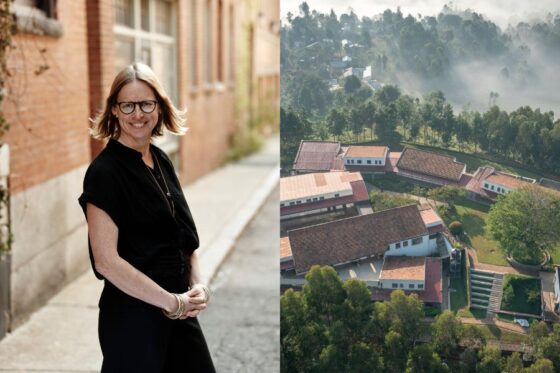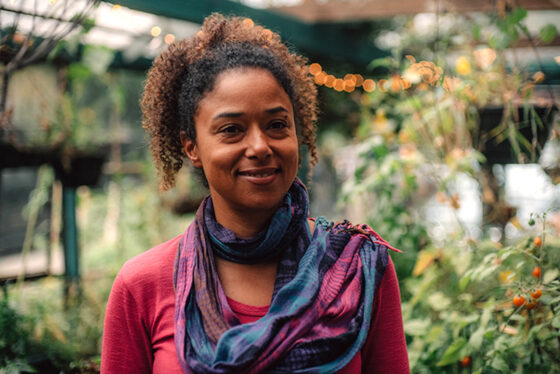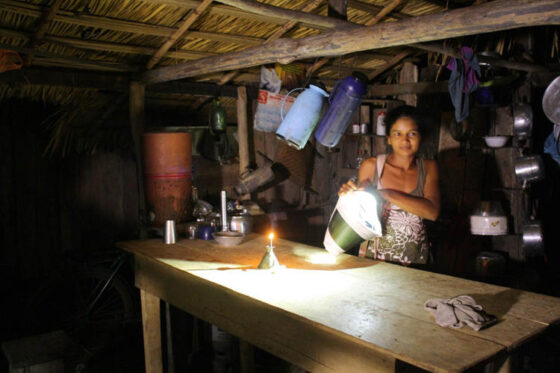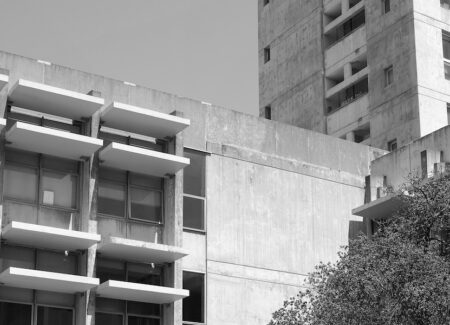
Berkeley Rupp Prize
The Berkeley Rupp Prize provides recognition and support of the special values that women bring to the built environment. An award of $100,000 is given to a distinguished practitioner or academic who has made a significant contribution to the areas of gender equity, environmentally sensitive use of resources, community, Diversity, Equity and Inclusion, and/or innovation in their body of work.
Designed as a period for regeneration, this unique opportunity provides recipients with the chance to engage in creative scholarly pursuits during a period of residency at the College of Environmental Design at UC Berkeley. During their time at CED, recipients have access to the college’s resources and the broader University of California, Berkeley network of scholars. This time of reflection and inspiration is intended to inform the recipient’s future contributions to their field.
The Berkeley Rupp Prize benefits the recipient as well as CED and the broader community. The terms of that negotiated mutual benefit are flexible and tailored to meet the needs both of the prize recipient and of CED, but may involve focused workshops, a research seminar, a semester-long studio, an exhibition, symposium, or some other set of activities that engage CED’s architecture community.
Past Recipients
-
 2024–2025
2024–2025Sandhya Naidu Janardhan is an architect and advocate of community-led social impact design and sustainable architecture. Her work focuses on cultivating processes that provide marginalized communities with the agency to choose where and how they live, work, and play.
-
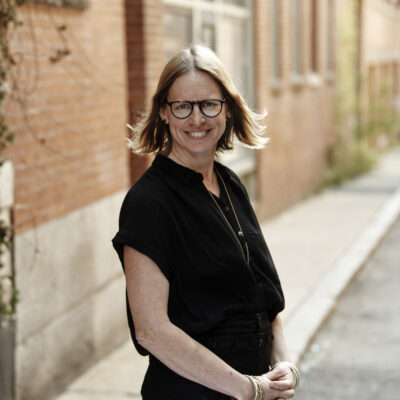 2023–2024
2023–2024Sierra Bainbridge, an award-winning landscape architect and a co-founder of MASS Design Group, has worked at the forefront of initiatives that explore the role of design in cultural and environmental healing. Her projects, which emphasize dignity and truth-telling, address equity and justice in the context of a global community. “I am committed to design as a tool of healing and I am constantly rediscovering what that means,” Bainbridge says.
-
 2018–2019
2018–2019“There’s a lot happening in our industry right now, a consciousness-raising shift taking place that I’m excited to be a part of,” says Van Buren, “and The Rupp Prize means people see value in this type of thinking.”
-
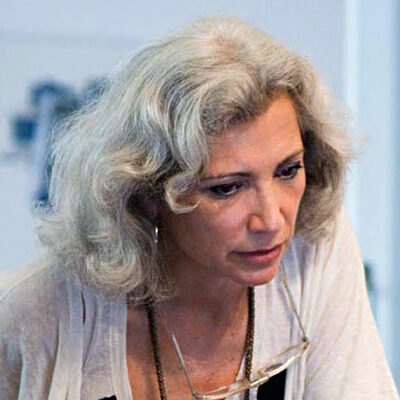 2016–2017
2016–2017Carme Pinós will bring her wide experience as an architect, urban designer and teacher to Berkeley. Her architecture is known for bold and vibrant forms yet her designs deeply engage the user, the city and the landscape. Whether designing a museum, or planning a factory in Burkina Faso to help boost the economy, her projects reflect a thoughtful connection to the poetry of place.
-
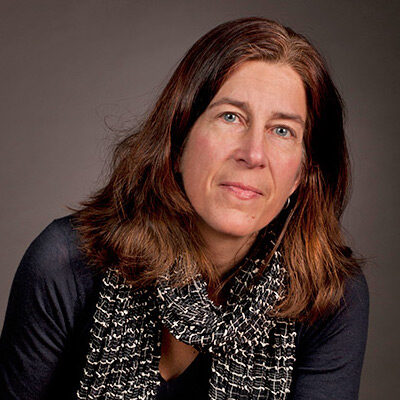 2014–2015
2014–2015Design leadership that integrates systems, inspires collaboration, and honors culture is essential if we are to craft a sustainable future. Sheila’s creative work in inventing new links between urbanized and natural ecologies, and changing the ways in which we think about material culture and manufacturing in a society that is increasingly local and global, is the embodiment of what we strive to cultivate with this prize.
-
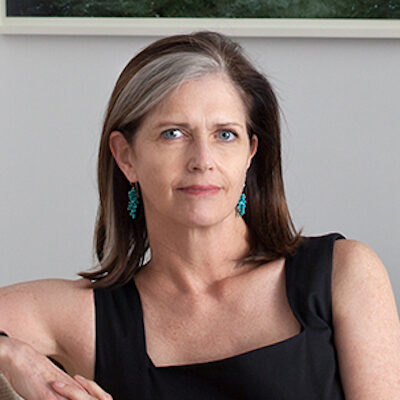 2012–2013 Inaugural Berkeley Rupp Prize Recipient
2012–2013 Inaugural Berkeley Rupp Prize RecipientDeborah Berke exemplifies everything this prize is meant to celebrate. The excellence of her craft, her creative approach to sustainability, and her willingness to mentor women in the field and share her ideas and expertise make her the perfect person to receive the Berkeley-Rupp Prize.
ABOUT THE RUPP PRIZE
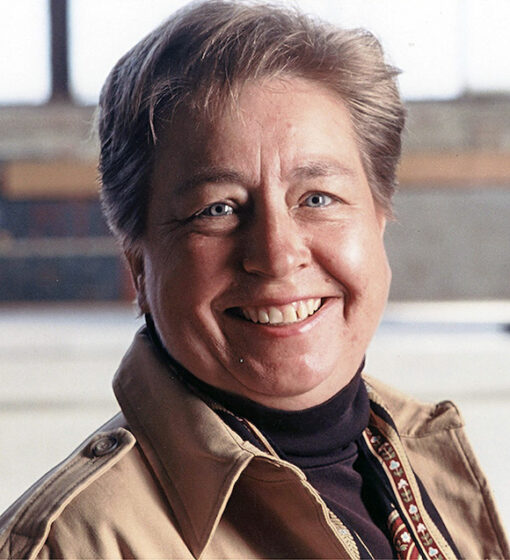
In an effort to foster a holistic approach to architecture and professional practice, Sigrid Lorenzen Rupp created the Berkeley Rupp Architecture Professorship and Prize. The intent of the Berkeley Rupp Prize is to give recipients the resources and time necessary for reflection, and to share their knowledge and passion with students of architecture. Rupp’s generous bequest to UC Berkeley makes possible the Berkeley Rupp Prize at the College of Environmental Design.
Rupp believed that practitioners would benefit greatly from an opportunity to engage in creative and scholarly work away from traditional practice, research and/or teaching. She was a champion of women’s rights, especially in the profession of architecture, and was a mentor to many women and minorities wanting to succeed in the field. Rupp believed that women bring special values to architecture that emphasize a “triple-bottom-line,” which includes economic, environmental, and social approaches to design and a commitment to sustainability and the community.
About Sigrid Rupp
Sigrid Rupp was a Palo Alto based architect who studied architecture at the University of California, Berkeley, where she was mentored by Joseph Esherick, Harold Stump, and Donald Reay. After graduation, she went on to work for several Bay Area firms.
In 1976, Rupp founded her own firm, SLR Architects, for which she served as president until her death. Some of her significant projects include the Press Building and Storey House at Stanford University; a testing facility for Apple Computer that won an American Institute of Architects (AIA) Honor award; and a factory retrofit and rehab for Raychem Corporation. Her work also included retail stores, offices, private residences, and remodels of older buildings.
Rupp was a member of the Organization of Women Architects, the AIA, and the Union Internationale des Femmes Architectes. In 1998, the International Archive of Women in Architecture honored Rupp by including her body of professional work in their collection.
Nominating Committee
- Lucy Berman, Sigrid Rupp Trustee
- Renee Chow, William W. Wurster Dean; Principal, Studio URBIS
- Robert González, Professor of Architecture, Dean of the School of Architecture + Planning, University of New Mexico
- Lisa Iwamoto, Chair and Professor of Architecture; David K. Woo Chair in Environmental Design; Principal, IwamotoScott Architecture
- Sandhya Naidu Janardhan, 2024–25 Rupp Visiting Professor of Practice; Founder + Managing Director, Community Design Agency (CDA)
- Lisa Kleissner, Sigrid Rupp Trustee
- Yasmin Vobis, Assistant Professor of Architecture; Principal, Ultramoderne
Lucy Berman began her career as one of the first salaried women employees at a major engine manufacturer. She went on to earn an MBA (as the only woman in her class), build a successful art consulting business and run an art gallery. After a 5-year return to the manufacturing sector, she made another career shift and became a realtor in 2004. Concurrently, she has been active in the non-profit sector as a co-founder, board member and Facility/Design Committee co-chair of Palo Alto’s Congregation Etz Chayim as well as a 10-year board member of the Palo Alto Art Center. Berman holds a BA in Economics and Sociology from Oberlin College and an MBA from IMD in Lausanne, Switzerland.
Renee Chow joined the faculty in the Department of Architecture in 1993 and currently serves as Dean of the College of Environmental Design. Both her practice and her research focus on the intersection between architecture and its locale. One problem for contemporary design is to link the structure of the city and landscape with its individual pieces — to design how each affects and is affected by the other. In making pieces of our cities — highways and streets, parks and buildings — our current architectural culture too often strives for a degree of formal autonomy from surrounding circumstances. The experience of a city becomes a cacophony of competing markers. The local experiences of neighborhood textures, district orientations, and collective practices of dwelling disappear as our design practices increasingly lose the tools to make them.
Professor Chow is also principal of Studio URBIS, an architecture and urban design practice formed in collaboration with her partner, Thomas Chastain.
Professor Chow was recently named a 2021 ACSA Distinguished Professor. She has been honored by the College of Environmental Design with the Eva Li Chair in Design Ethics from 2005 to 2010, by Architecture Magazine as one of its “Ten Top Architectural Educators” and by the AIA California Council with its Research and Technology Honor Award. She received her SBAD and M.Arch. from, as well as previously taught at, the Massachusetts Institute of Technology.
Robert Alexander González is the Dean of the School of Architecture & Planning (SA+P) at the University of New Mexico (UNM). He served as the 2021-22 President of the Association of Collegiate Schools of Architecture (ACSA) and is a founding member of the Dean’s Equity and Inclusion Initiative. He began his administrative trajectory as the Director of the Texas Tech El Paso Program in 2011-2020. He was instrumental in re-locating this program to the US-Mexico border, in the historic 1906 Daniel H. Burnham Union Depot train station to better serve students from the states of Texas, Chihuahua, and New Mexico. An award-winning Professor of Architecture, González is a tireless advocate for equity and diversity in higher education, with experience serving as P.I. for a joint (with EPCC) $5.9 million Department of Education HSI STEM grant. He headed a nationally recognized university-community college partnership for nine years.
González’s field-leading book, Designing Pan-America: U.S. Architectural Visions for the Western Hemisphere, has been widely reviewed, and it continues to serve as a key source for courses, exhibitions, and theses/dissertations globally. He has been featured in numerous publications, including Architect, Architecture, Architectural Record, JAE, Places, PLATFORM, Revista ARQ, and the Architect’s Newspaper. He is the founding editor of the journal, AULA: Architecture & Urbanism in Las Américas, which published notable authors, including Angela Davis, Sandra Cisneros, Winona La Duke, and Carlos Monsiváis. He also co-chaired AULA symposia at Harvard University, Tulane University, University of New Mexico, and TTU El Paso.
Lisa Iwamoto teaches design studios and graduate seminars. Her research focuses on digital fabrication and material technologies for architecture, and includes development of the CAD/CAM lab in the Department of Architecture. Her book, Digital Fabrications: Architectural and Material Techniques was published in Spring 2009 by Princeton Architectural Press as part of their series Architecture Briefs. Iwamoto received her Master of Architecture degree with distinction from Harvard University where she was recipient of the Faculty Design Award, and a Bachelor of Science degree in Structural Engineering from the University of Colorado. She has taught previously at the University of Michigan where she was Mushcenheim Fellow, and at Harvard.
Iwamoto is principal of IwamotoScott Architecture, a practice formed in partnership with Craig Scott. Committed to pursuing architecture as a form of applied design research, it engages in projects at multiple scales and in a variety of contexts consisting of full-scale fabrications, museum installations and exhibitions, theoretical proposals, competitions and commissioned design projects.
Sandhya Naidu Janardhan, is the Founder and Managing Director of Community Design Agency (CDA), a Mumbai based social enterprise working towards a world where everyone enjoys vibrant, safe and healthy spaces to live, work and play. At CDA, she has led the creation of spaces that are foundational to climate-resiliency, gender, economic, and social inclusion, health and overall wellbeing, thereby catalysing generational change for communities across 4 Indian cities.
Naidu Janardhan believes that spatial equity is inextricably linked to dismantling systemic issues including gender, social and health inequity, climate vulnerability, economic inclusion and identity. And that sustained impact is only achieved when those affected have true agency and voice over where and how they live. To this end, she developed proven participatory processes and methodologies with the communities she served, rooting them in intentional listening and empathy.
Licensed and educated in India, Naidu Janardhan is a graduate of Columbia University’s GSAPP. Her subsequent 15-year career spans multiple countries and the commercial and non-profit sectors. Ranging from landscape architecture for a Singapore-based interdisciplinary design firm, and post-earthquake reconstruction in Haiti for a US-based non-profit. Naidu Janardhan is a TED India Fellow, a Young Climate Prize Design Champion and more recently, is the recipient of the 2024-25 Berkeley Rupp prize for outstanding female architects working in the social sphere.
Lisa Kleissner is the President of the KL Felicitas Foundation, dedicated to supporting programs that enable social entrepreneurs and enterprises worldwide to develop and grow sustainably, with an emphasis on rural communities and families; and advocating the Foundation’s Impact Investing Strategy. She provides pro bono architectural, project and construction management services for nonprofits both locally and internationally with a focus on culturally appropriate and sustainable design. Additionally, Kleissner has led fund raising efforts for local and international nonprofits focusing on capital and endowment campaigns.
She currently serves on several boards: Aqua-Spark, a global aquaculture investment fund; Real Good Fish, a California based sustainable community supported fishery; Hawaiʻi Investment Ready, a nonprofit capacity building Native Hawaiian and Kamaʻaina social entrepreneurs; and the Community Association of Big Sur, a nonprofit community action board for the Big Sur community. Kleissner was the Vice President of an architectural firm in Hawaii doing work in India, Hong Kong, Singapore, Sri Lanka and Malaysia. More recently she was the president of The Kleissner Group, an architectural and project management firm in Silicon Valley. Kleissner graduated from the University of Hawaii at Manoa with a B.Arch in Environmental Design.
Yasmin Vobis (RA, NCARB, FAAR) is a registered architect and co-founding principal of Ultramoderne with Aaron Forrest. Ultramoderne is an internationally-recognized, award-winning architecture firm that creates buildings and public spaces that are at once modern, playful and generous. She joined the UC Berkeley faculty in 2023 as an Assistant Professor of Architecture, and she teaches design studios and courses on construction. Her recent book Heterogeneous Constructions (co-authored with Aaron Forrest and Brett Schneider) examines mixed-material construction as a cultural practice (Birkhauser 2024). Vobis holds a BA from UC Berkeley and a Masters in Architecture from Princeton University. She was awarded the Rome Prize in Architecture in 2016.
